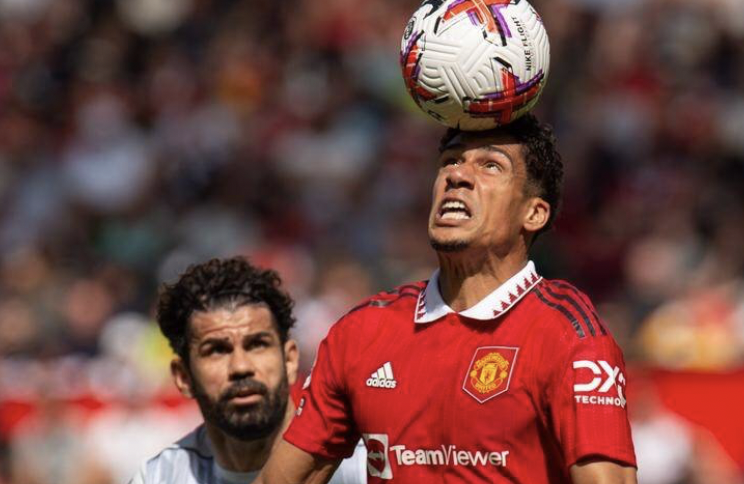April 3 – Manchester United’s French international defender Raphaël Varane has opened up alarmingly about how concussion has damaged his body as he stressed the importance of creating more awareness among players around the dangers of heading the ball.
Varane (pictured) said that in France’s last-16 match against Nigeria in the 2014 World Cup he finished the tie in “autopilot mode”, only to start against Germany just four days later when France lost 1-0.
He also cited concussion while at his former club Real Madrid when they lost to Manchester City in the last-16 second leg of the 2020 Champions League.
The 2018 World Cup and four-time Champions League winner reflects on playing through symptoms and highlights the dangers of repeated head impacts, advocating better awareness for both current and future generations.
Varane, 30, says he has experienced multiple games for both club and country in which he “felt like a spectator” due to concussion symptoms.
Varane, who retired from international duty last year at just 29, told l’Equipe: “What we will never know is what would have happened if I had taken another impact to the head. When you know that repeated concussions have a potentially fatal effect, you tell yourself that things can go very wrong.”
Researchers have found evidence suggesting that repetitive heading of balls during a professional football career is associated with a higher risk of cognitive impairment in later life, according to a study commissioned by the Football Association.
“The first time I heard about [micro-concussions] was this season when specialists came in to talk to us about it… Often, as a player, we don’t understand and we don’t even think about doing a test,” said Varane.
“Earlier this season, I headed the ball repeatedly during a match for Man Utd and felt abnormally tired in the following days, as well as having some eye fatigue. I reported it to the staff who strongly recommended that I don’t play, and I took a test which meant that I missed the next match.”
Varane feels that the culture of men’s football needs to change in the debate around concussion.
“As footballers playing at the highest level, we are used to pain, we are a bit like soldiers, tough guys, symbols of physical strength, but these symptoms are almost invisible. No matter how much the player says he wants to play, the medical staff have to veto it, because it puts players’ lives at risk.”
Football lawmakers, the International FA Board, recently approved the use of permanent concussion substitutes after repeated calls to do so from governing bodies. Varane says it needs to go further.
“My seven-year-old son plays football, and I advise him not to head the ball,” he said. “Even if it does not cause immediate trauma, we know that in the long term, repeated shocks are likely to have harmful effects. I don’t know if I will live to be 100, but I do know that I have damaged my body. The dangers of headers need to be taught on all amateur football pitches and to young people.”
Contact the writer of this story at moc.l1722043602labto1722043602ofdlr1722043602owedi1722043602sni@w1722043602ahsra1722043602w.wer1722043602dna1722043602

